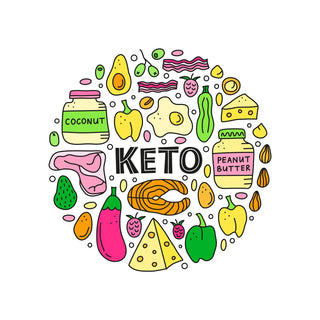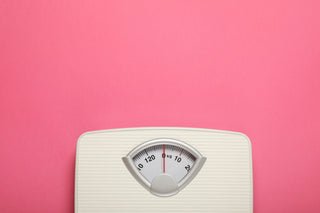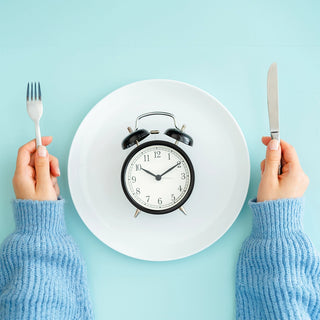
The WillPowders Way to Being in Ketosis
Imagine a world where fat was always on the menu, where it was actually good for you and by eating it, you still lost weight. Well, it is in the WillPowders World, For Fat’s Sake!
Begone are the days of depriving your body of what it actually needs to function properly. It’s time to say goodbye to the guilt and constant worry of lifting fork to mouth, of calorie counting and self deprecating because you dared to shun low fat foods and ignore outdated and erroneous health care guidelines, which have been manipulated by big food and big pharma.
It’s Time to Get Wise to the Lies…
…lies that perpetuate the myth that raised cholesterol is bad and will kill you. Lies that eating fat will make you fat. Lies that fat will zap your energy and make you lazy. Lies that fat consumption will make your face breakout and wreck your complexion. Lies, lies, lies…#FFS
In true WillPowders fashion, we’ve cut through the con, brought the research together and popped it all in a Fat/MCT blog series for your convenience. We don’t half love shedding a bit of light on the mistruths forced upon you by big wigs trying to make a buck!
Fat, Your Friend with Benefits!
Fuelling with fat (ketogenic diet) equals satiety, which means you won’t be seeking out the snacks, snacks, that in that moment of hunger, or when you’re on the go, may be riddled with damaging seed oils, may be ultra processed, may have been presented to you under the guise of “being good for you”, and all the while, are wrecking your gut health, playing havoc with your hormones, making you pile on the pounds and pushing you closer to insulin resistance.
When you prevent your body from having to use the sugar burner system as an energy source e.g. eating carbs for energy, your body is forced to use ketones. Ketones are made in the liver, and, in a nutshell, they use fat (stored or consumed) for energy instead.


Feed the Brain and the Body will Follow…
Your brain is made of 60% fat; therefore when you fuel with fat, you feed your brain what it wants and needs to feel full and stop you reaching for the biscuit tin. In turn, you encourage the production of ketones. Not only do ketones make you super sharp and focused, they stabilise blood sugar levels which rein in the brain and stop it from telling your body you need to fuel up with sugar for energy. Clever ketones, clever brain!
Inflammation? Me? No way!
Sorry to burst your bubble, but we are all inflamed. Whether it’s from lighting our favourite scented candle; rolling around on the carpet with the dog; eating a shop bought or takeaway pizza on a Friday night and washing it down with a glass (ahem…bottle) of wine; giving TikTok’s latest beauty product a whirl because the newest influencer told us to, or being chained to our work desk Monday to Friday with little time to move anything other than our fingers across the keyboard, inflammation fires and it’s very difficult to avoid it. However, we can mitigate it and all the toxins that life throws at us that our bodies have to constantly battle. The battle? Inflammation, that is trying to help us, but can equally make us feel utterly pants at the same time.
Ultimately, ketogenic diets (FAT) have been shown to reduce markers of inflammation, which may have implications for managing chronic inflammatory conditions. How? By lowering blood sugar levels and insulin, which can suppress inflammatory pathways. Additionally, ketones produced during ketosis may have direct anti-inflammatory effects, potentially benefiting conditions linked to chronic inflammation such as arthritis and metabolic syndrome. Hoorah for pain free existence and a bit of future proofing when the old bod starts to get its creak on!


Keto Weight Loss
Whilst all these benefits are utterly fabulous, often people consider a ketogenic diet to give their weight loss journey a nudge; however, it can be difficult to wrap one’s brain around how eating a diet high in fat can help you shift, well…fat. Yes, you will likely experience an increase in energy levels, meaning you’re more likely to pick up the weights, hit the pavement in your neglected runners or bash out a couple of squats during the adverts, but the real reason why the numbers on the scales will start to fall is because you are using the fat you consume as your primary energy source. By cutting out or down on the carbs, your body has no choice but to opt for an alternative fuel to keep you moving. Therefore, you can say goodbye to storing fat, which only happens when you load your plate with sugars, aka carbs, as your preferred source of nutrition. It’s a simple case of a swaperoo!
Ultimately, your decisions around carbs are up to you. You need to decide what is going to work best. If you're looking for real and fast results, maybe keep a wide berth, but if you're happy with a slow and steady weight loss journey, make good carb choices.
Insulin? What’s that all about?
Ketones promote fat burning, by reducing insulin levels and increasing fat metabolism. Not only will you often experience a reduced appetite, but more stable energy levels, meaning you may have the motivation to move more. But wait; there’s more… Improved insulin sensitivity and lower blood sugar levels are beneficial for us all, but particularly for those with type 2 diabetes or insulin resistance. Insulin is an underrated hormone that is often disregarded by those who don’t suffer with diabetes and who aren’t forced to worry about it, but we would urge you to learn about how insulin can impact your health by giving our Sugar and Spice and All Things Insulin Resistant blog a squizz so that you can protect your longevity and future proof your body.


Hello, You Sexy Burst of Mojo!
Ketones, fuelled by fat, provide a steady supply of energy without the fluctuations associated with glucose metabolism. This can result in improved endurance and sustained energy throughout the day - wouldn’t that be nice, especially as you battle the onslaught of parenting, work, hormonal shifts and general adulting?
This is Amazing, but where do I Start?
It’s important to remember that not all fats are created equal and sticking to healthy fats as ketogenic fuel is important. Focus on foods like avocado, nuts and seeds, oily fish (which is high omega 3) and oils like olive, avocado, coconut and MCT. Remember, your aim is to replace the majority of your carbs with good fats, so stay clear of sugar and starch. Cut out the likes of seed oil riddled breads which will only wreak havoc in your gut and disrupt your hormone harmony. Limit your intake, to around 50g, of pasta, rice, potatoes and high sugar fruit.
Macro Chat...
There’s lots of macro chatter amongst health aficionados but in its most basic form, by sticking to around 70-75% fat, 20-25% protein and between 50g and 20g of carbs a day, you should reach ketosis in no time.


Keep it Wet!
Stay properly hydrated, and when I say properly I mean implement an electrolyte routine. By making an electrolyte drink your first sip of the day, you are providing your body with the tools (vitamins and minerals) it needs to keep hold of and use the hydration (water) in the most efficient way. You’re also aiding your body to make the transition to using fat as fuel. Unlike most electrolytes on the market, WillPowders ElectroTide is the only electrolyte that won’t spike your blood sugar, isn’t riddled with nasties, doesn’t taste like a gob full of salt water and will not only hydrate the whole of you, but will flush out toxins at the same time. And the best thing of all? We’ve just added to our electrolyte range! We now offer you ElectroTide in watermelon, cherry and citrus. You asked for it, so we delivered! Magic!
Tool Up!
Sometimes it’s hard to know if you’re in ketosis or not. Consider using tools to help. You can buy ketone urine strips or a blood ketone monitor to keep track and give you some understanding of the alchemy that is taking place within. Aim for a range of 0.5-3.0 mmol/L of ketones in your blood for optimal ketosis. We’re giving Keto Mojo a go at the minute and so far, so good.
Remember, Rome wasn’t built in a day and totally cutting our carbs might feel too joyless. That’s okay, we get it. So much so, we have a blog dedicated to the food group. Here you will learn the difference between a good carb and a not so good one, when to eat them and how to eat them. Our top tip is to save your 20-50g for your evening meal or supper. That oh so familiar carb coma can come in very handy when you’re readying your body for a good kip.
Allow Yourself a Ketosis Boost with Intermittent Fasting
Intermittent fasting, alone, comes with a whole host of health benefits which are explored in our 5 Reasons to get Started with Intermittent Fasting blog; however, making a conscious decision of when you eat can really set the state of ketosis on fire, as well as supporting your transition to a ketogenic diet.
Hello Enhanced Fat Burning!
When you fast, you promote the depletion of glycogen stores, facilitating quicker entry into ketosis and increasing the body's reliance on fat for fuel. Not only this, extending fasting periods encourage the liver to produce ketones more efficiently, thereby deepening the state of ketosis. Ultimately, they work hand in hand, improving both metabolic flexibility and allowing the body to switch between burning glucose and fat more effectively.
Not only will you start to shed those pesky pounds, your body will start to heal itself. How? Thousands of years ago, our ancestors couldn’t just nip the supermarket to stock up. Instead, they would have to catch their food, which could often be scarce, resulting in days where they wouldn’t eat at all. Scientists believe that this changed human genetics and provided the body with a new genotype - giving the body cellular tools to adapt to when food wasn’t available. It is believed that this ‘thrifty’ gene still exists in us today; however, we rarely tap into it because of the convenience that now exists in our world and because we fuel in the wrong way, constantly spiking our blood sugar, resulting in constant plummets and triggering our hunger hormones all over again. It’s a hideous and dangerous cycle of unconscious abuse on our bodies. Because we fail to give the body a break from constant consumption, it is believed that our health has suffered and why the likes of insulin resistance, obesity and diabetes are rife.
When we do give our body a break, ketones get to work, and not only do they fuel themselves with stored fat, they regenerate certain tissues in the body, they gobble up diseased cells (autophagy) and they power up the mitochondria, the part of your cells that make energy. To top it off, ketones trigger the release of our feel good hormones, like GABA, serotonin and dopamine. Hoorah! Who doesn’t love a bit of free happiness?


16 Hours off, 8 Hours On!
If you’re new to the world of intermittent fasting, start with the 16:8 regime. Simply fast for 16 hours of the day (including sleep time) and eat within an 8 hour window. If this sounds like an impossible feat, fear not!
The WillPowders Way
- To get you on your way and to work up to 16 hours worth of fasting, simply start by pushing your eating window back gradually, e.g. if you normally eat breakfast at 8am, push it back to 9am and so on and so forth, until you reach that 16 hour threshold.
- Stay super hydrated! Often we misread dehydration as hunger so stock up on ElectroTide and drown out those cravings!
- If you are planning to brave it and push for the big 16, you need to understand what will and won’t break your fast. Drink your heart out, but stick to black tea or coffee, and stay far away from anything with sugar in it. 1-2 teaspoons of MCT Oil will keep you in a fasted state and help increase ketone levels, so by all means pimp your coffee or simply chug it off a spoon. Stave off the crave even further by popping 2-5g of collagen, during your fasting window, into a black tea or coffee.
- Alternatively, if you feel intermittent fasting just isn’t for you, try fuelling with MCT Keto Powder or MCT Oil. Perfect for when you’re at home, or on the go, our pouches and travel sachets are packed with ketogenic energy and good fats which will keep you satiated and away from the croissants. Take note of your cravings or when you're most likely to become distracted by sandwiches or office biscuit tin. When they strike, try adding a tsp of MCT Oil or Keto Creamer into a tea or coffee and see if they are still beckoning you.
- MCTs are rapidly absorbed and converted into ketones by the liver, making them a great way to keep your energy high and those cravings crushed. Give the WillPowders coffee a whirl, you’ll be surprised how easy it will be to get to lunch without the need to chew.


Easy Peasy!
Ultimately, planning is key. If all you have in your pantry is insulin spiking fare, when it comes to the end of your fasting window, you’re going to really struggle to make good food choices. Get organised and load up with ketogenic friendly goodness so that you can avoid ruining all your good work. Our bone broth protein powder is the absolute perfect and easiest way to break a fast. Rich in vitamins and minerals, the goodness of ancient nutrition, and with the added benefits of our MCT Keto Powder, you can get on with your day and continue to adorn your new ketogenic cape. You go, superstar!
We’ve also put together our very own How To Guides for Collagen, MCT Keto Powder and MCT Oil to further support you on your WillPowders Way!
Keep it Keto
So, there you have it, the WillPowders guide to ketosis. We know that starting something new and disrupting your normal routine can feel overwhelming and requires a little bit more of your already drained energy, so if you’re looking for support from like minded people, consider joining the WillPowders tribe on our For Fats Sake Facebook page. Here you will find lots of people at different stages of their WillPowders journey asking and answering questions and generally providing that all important camaraderie. We love them and are certain you will too.
For further reading about fat, cholesterol and all things ketosis, check out our Fat and MCT blogs and our research below:
Research and Further Reading
Energy and a Ketogenic Diet
A study published in the British Journal of Nutrition discusses how ketones, produced during a ketogenic diet, can serve as an alternative energy source for the brain. This can potentially improve cognitive function and sustain energy levels, especially in aging populations1.
Research highlighted by Newsweek indicates that the ketogenic diet can boost brain function and longevity by shifting the body’s energy source from glucose to fat. This metabolic shift can lead to increased energy efficiency at the cellular level2.
A review in Frontiers in Nutrition mentions that short-term studies have shown an increase in energy expenditure on a ketogenic diet. This suggests that the body may become more efficient at using fat for energy, leading to increased overall energy levels3.
Inflammation and Ketogenic Diet
A scoping review published in Nutrition Research Reviews found that low-carbohydrate and ketogenic diets can have favourable outcomes on inflammatory biomarkers. The review analysed 63 studies and reported that 71% of them showed a reduction in inflammation.
A study from the University of California, San Francisco demonstrated that a ketogenic diet alters the gut microbiome, leading to a reduction in pro-inflammatory immune cells in the gut. This study involved both human and mouse models.
Insulin and a Ketogenic Diet
A systematic review and meta-analysis published in Nature’s Nutrition & Diabetes found that a ketogenic diet significantly improved glycemic control and insulin resistance in patients with type 2 diabetes mellitus (T2DM). The study reported reductions in fasting blood glucose and glycated hemoglobin (HbA1c) levels1.
A review in Nutrients discussed the effects of a ketogenic diet on insulin sensitivity and weight loss. The review highlighted that ketogenic diets can improve insulin sensitivity, although it noted that some of these benefits might be mediated by weight loss2.
Research from Texas Real Food indicated that the ketogenic diet can lead to better blood sugar regulation and improve glycemic profiles in individuals with elevated blood sugar levels. Controlled trials have shown the diet’s efficacy in reducing glycemic responses3.
Weight loss and a Ketogenic Diet
A study published in Nature Metabolism found that a ketogenic diet may protect against obesity by increasing specific bile acids and decreasing calorie absorption in the intestines. This study involved both mice and humans, showing significant weight loss and improved metabolic traits1.
An umbrella review of meta-analyses in BMC Medicine reported that very low-calorie ketogenic diets (VLCKD) were significantly associated with weight loss in overweight or obese adults. The review included 68 randomised clinical trials and found moderate-quality evidence supporting the diet’s effectiveness in reducing body weight2.
A review of 13 studies highlighted by Healthline found that a very low-carb, ketogenic diet was slightly more effective for long-term weight loss than a low-fat diet. Participants on the keto diet lost an average of 2 pounds (0.9 kg) more than those on a low-fat diet3.
Recipes

Pesto Omelette
Another delicious way to enjoy eggs, made doubly yum and gut loving with a dose of Apple Cider Vinegar and Collagen!

Moussaka
Let's head to Greece with this delicious moussaka recipe. Full of good fats and quality protein, this 30 (ish) minute recipe will be a winner!
Disclaimer
Our blogs are written with love in the hope that they go some way in helping you feel like the rockstar you are, and whilst we do our due diligence, research like maniacs and fact check our stuff, we know everyone’s journey is different. They are intended to educate and empower you, not usurp medical advice. We would never advise you to stop, adjust, or modify any prescription medication without the direct supervision of your healthcare practitioner, but don’t be afraid to talk to your doctor about your new found knowledge, brought to you by the marvels of nature because they don't know everything! Blogs are always informed by Davinia but often written by a member of the team. Not all blogs reflect Davinia's experiences and sometimes provide alternative perspectives








